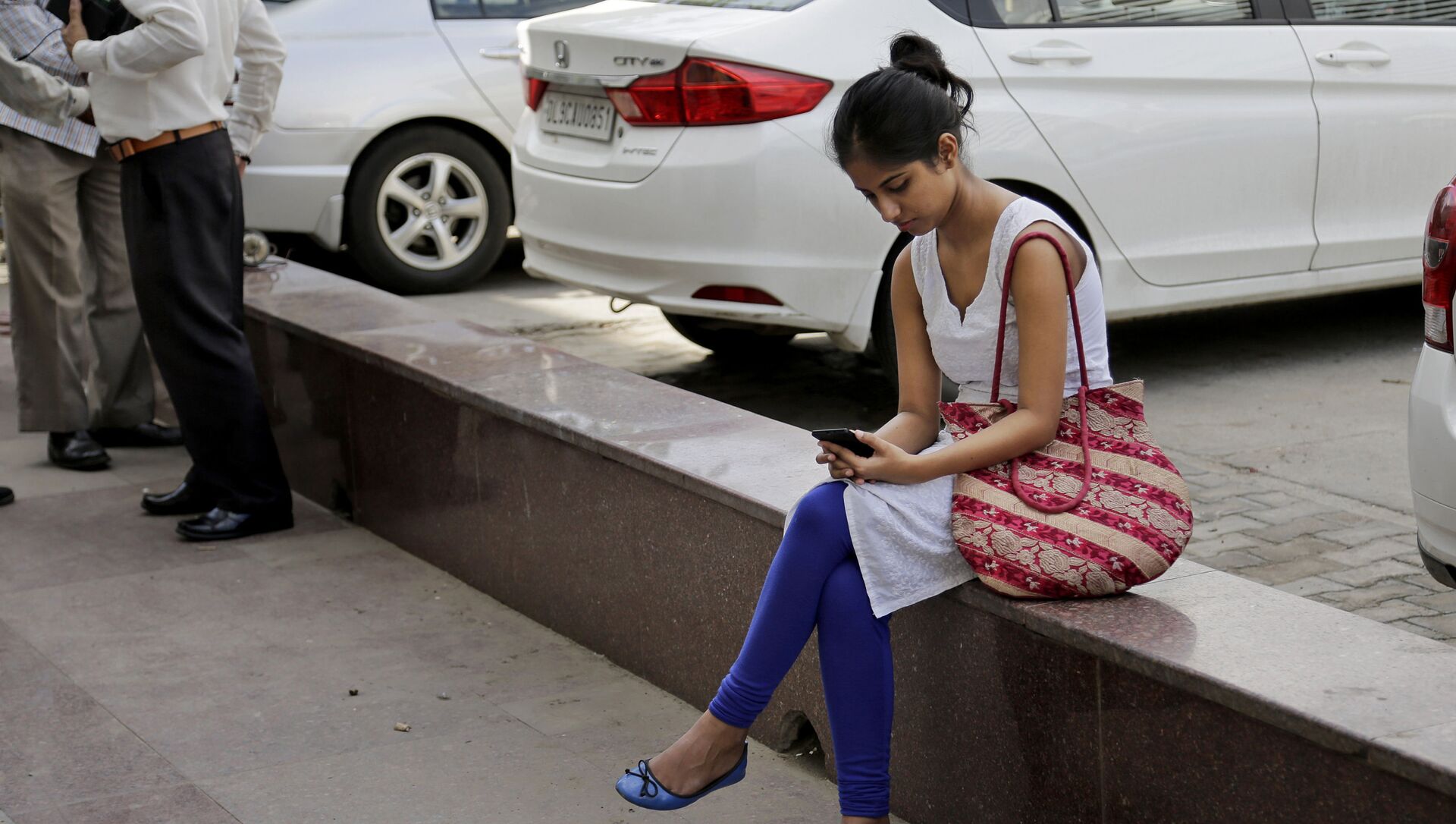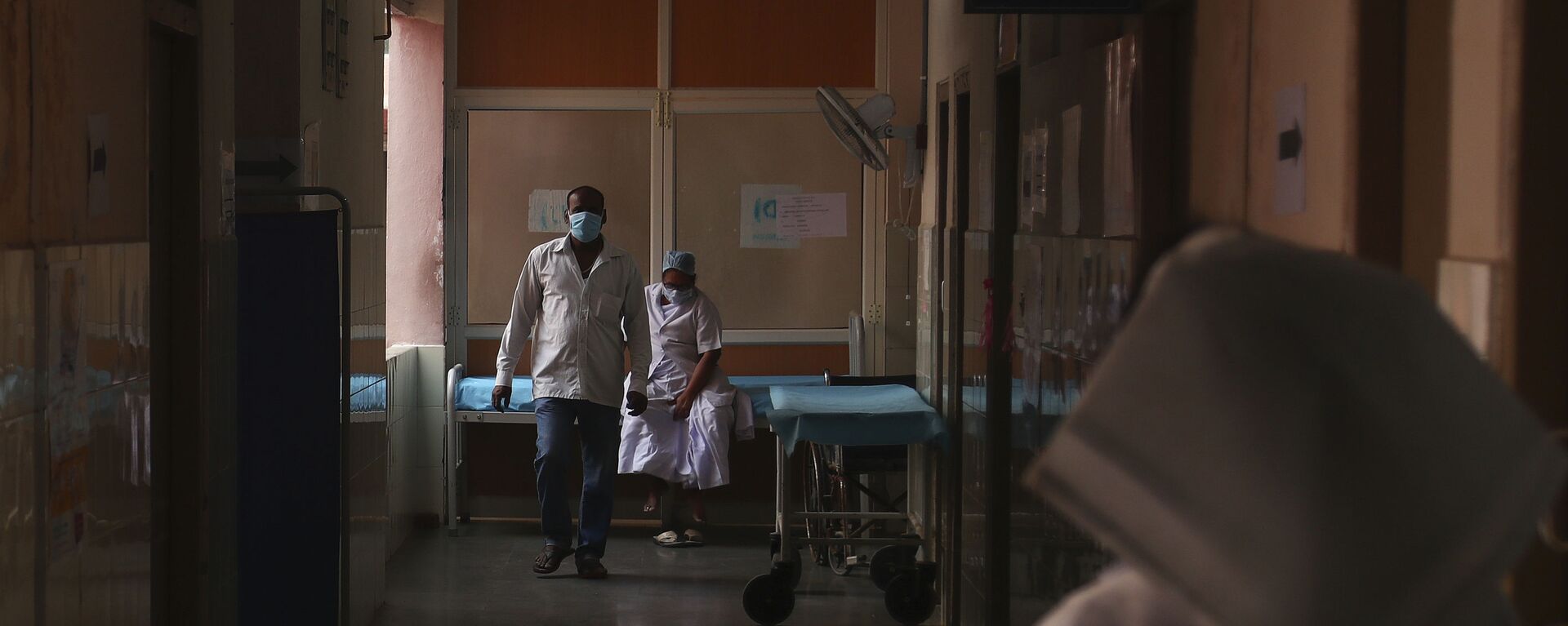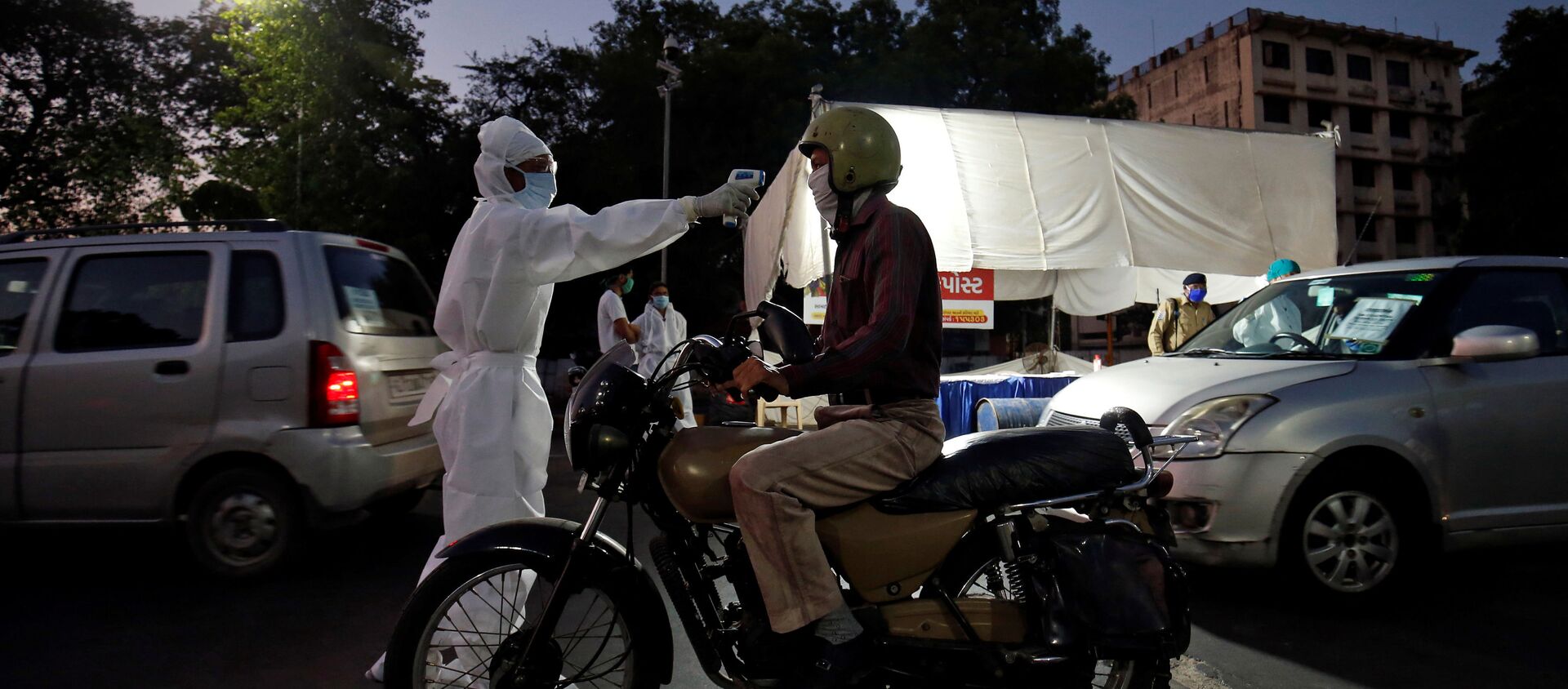'Digital Wave': India's Growing HealthTech Sector Evolves Amid Ongoing Coronavirus Pandemic
10:21 GMT 27.07.2021 (Updated: 10:37 GMT 19.07.2022)

© AP Photo / Altaf Qadri
Subscribe
According to India's health sector experts, earlier most people were habituated to the concept of consulting the doctor physically and using over-the-counter medications. However, the ongoing coronavirus pandemic has enhanced the importance of the digital transformation of India's health sector.
The ongoing coronavirus pandemic has forced India to undergo sweeping social changes, and the digitisation of various sectors is one of them. Millions of Indians stuck at home can now simply use their smartphones to get everything they need delivered.
Healthcare is just one of those sectors adapting via remote work in India, as the pandemic has eroded misgivings and enhanced people's willingness to accept the "digital era".
In the past year, rather than worrying about visiting hospitals for check-ups or tests, millions of Indians have turned to online platforms to consult with doctors, order medicine, and get diagnostic tests done.
According to a recent health tech report by IAMAI-Praxis, E-pharmacies saw a 200 percent rise in their number of orders in 2020, while appointments on teleconsultation platforms increased by 300 percent. The industry experts say that this pandemic has led to a "phenomenal year" for Indian healthcare, especially health tech.
Several industry experts told Sputnik that in addition to advancements in the use of Artificial Intelligence (AI) and Machine Learning (ML) in the Indian Healthcare sector, there has been significant growth in the Internet of Medical Things (IoMT) that improved personalised care drastically.
According to an Internet and Mobile Association of India (IAMAI) and Praxis report, the Indian Healthtech industry is expected to reach USD 5 billion by 2023 at a compounded annual growth rate (CAGR) of 39 percent.
The Indian Healthcare system is responsible for the well-being of one of the largest populations in the world. Despite the World Health Organisation's recommendation of one doctor per 1,000 patients, India's doctor-patient ratio is skewed at one doctor per 1,511 patients. However, according to experts, this boom in the Indian Health market can ease down the gap.
Industry experts told Sputnik that the digital health sector has now evolved to become a basic need for both patients and doctors during these testing times, and this surge in the demand is here to stay.
"In any country, the rich and educated have always had the means and access to healthcare. The pandemic has shown to the world the magnitude of this jarring gap in healthcare access between the rural and the urban. The government can play a huge role by partnering with start-ups to bridge this gap. What we are seeing right now in the Healthcare industry is not like the internet bubble in the 2000s. While this has been a slow but steady rise in all countries, it has been propelled to the forefront as a need of the hour during the pandemic," Ramya Subramanian, Co-founder of Docty, told Sputnik.
Subramanian also informed that India has always been an "early adopter" and has proven to be a mature market for the Healthtech industry. However, Subramanian also pointed out that cultural and technological inhibitions have been something that all start-ups have faced, especially in a country like India.
With the rise in Digital Healthcare, the problem of uneven doctor-patient ratios will be managed and fixed, gradually. It will eventually result in better access to healthcare in rural areas, she said.
"New technologies have emerged and existing infrastructure was strengthened, backed by technology that certainly helped to navigate the situation. Currently, with everybody working from home and dependent on tech and digital for a lot of their needs, Health-tech start-ups will also make a lot of inroads into people’s lives and bring about a positive change. With 5G coming up in a serious manner, we will see Health tech booming. Today healthcare has become a basic need for everyone and will continue to remain so in the future," Jeetendra Lalwani, Co-Founder of Dial4242, told Sputnik.
Lalwani also stated that although this boost in HealthTech has benefited rural India, there is still a long way to go.
"The growing penetration of the internet and lower data costs in rural India has acted as a catalyst to this. Now people in rural areas can easily connect with a specialist in another part of the country through teleconsultation. This way, suitable treatment can be provided to a person in a rural setting much quicker and cheaper," Gaurav Gupta, Co-founder of Navia Life Care told Sputnik.
With the increase in the advancement of technology in healthcare, the risk of data leaks and privacy issues also arise. In India, as a part of its 'Digital India Mission', the Digital Information Security in Healthcare Act has been put in place, which seeks to provide electronic health data privacy, confidentiality, and security. Moreover, a data leak can damage the reputation of both doctors and their patients.
"No doubt that teleconsultation decreases the burden of the healthcare staff. I have personally held numerous teleconsultations and prescribed medicines to my patients via video consultation. In addition, it has made it easier for my patients to reach me regardless of our locations," Dr. Pradeep Srivastava, BSc, BAMS, Krishna's Herbal and Ayurveda told Sputnik.
Subramanian informed that for privacy protection, adhering to HL7 standards (a universally accepted standard for maintaining patients and their medical records, securely) is the way to ensure peace of mind for both doctors and patients.




